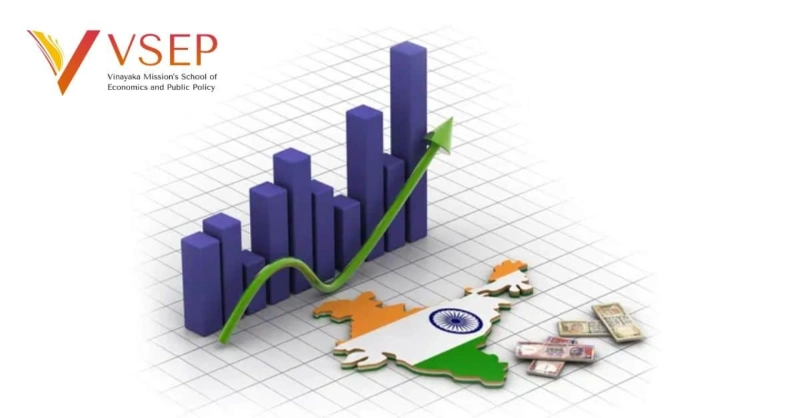If you are planning to pursue a career in economics, finance, policy-making, or research, a Bachelor of Science in Economics could be your ideal stepping stone. One of the most important things students want to know before enrolling in this program is the list of BSc Economics subjects. Understanding what subjects are taught and how they align with your career goals is crucial when choosing a university or college.
In this blog, we’ll break down the major BSc Economics subjects, their importance, and how they contribute to shaping a well-rounded economist.
Introduction to BSc Economics
BSc Economics is an undergraduate degree program focused on understanding how economies function at both micro and macro levels. It offers students the opportunity to develop critical thinking, analytical reasoning, and data-handling skills. The course structure includes core subjects, electives, and often interdisciplinary modules that build a strong foundation in both theory and applied economics.
Whether your interest lies in banking, government policy, international development, or academia, the BSc Economics subjects you study will play a significant role in preparing you for the real world.
Core BSc Economics Subjects
Every BSc Economics program includes core subjects that every student must study. These subjects cover the theoretical and analytical foundations of economics:
1. Microeconomics
Microeconomics is one of the fundamental BSc Economics subjects. It studies the behavior of individuals and firms in making decisions regarding the allocation of limited resources. Topics include demand and supply, elasticity, market structures, and consumer behavior.
2. Macroeconomics
Macroeconomics deals with the performance, structure, and behavior of an entire economy. Topics like national income, GDP, inflation, unemployment, and monetary and fiscal policy are part of this subject. It helps students understand how economic policies influence the broader economy.
3. Mathematics for Economics
Mathematical tools are essential in modern economics. This subject introduces students to calculus, algebra, and optimization techniques used in economic analysis and modeling.
4. Statistics for Economics
This subject teaches students how to collect, analyze, and interpret data. Statistical methods are widely used in economics for empirical research, policy formulation, and forecasting.
5. Econometrics
Econometrics combines economic theory, mathematics, and statistics to analyze real-world data. It is an advanced subject that allows students to test hypotheses and evaluate economic models.
6. Development Economics
Development economics is another key area that deals with issues related to economic development, poverty, inequality, and sustainable growth. It is especially relevant for those interested in working with international organizations or public policy.
7. Indian Economy / Regional Economy
Many universities include a subject focused on the Indian economy, where students study current economic issues, government programs, and sector-wise performance. This makes economic theories more relatable to the local context.
Elective and Interdisciplinary Subjects
Apart from the core curriculum, most universities offer elective BSc Economics subjects to allow students to tailor their learning experience. Some popular electives include:
- International Economics
- Environmental Economics
- Public Finance
- Financial Economics
- Behavioral Economics
- Urban Economics
- Labour Economics
Some programs also include courses from related disciplines such as Political Science, Sociology, and Data Analytics, offering a broader and more flexible learning experience.
Importance of BSc Economics Subjects in Career Building
The BSc Economics subjects you study are designed to equip you with a deep understanding of how economies operate. These subjects train students to analyze real-time data, predict market behavior, assess policy outcomes, and make informed decisions.
Graduates of BSc Economics often find career opportunities in:
- Economic research and analysis
- Government services and policy think tanks
- Financial services and banking
- Data analytics and business intelligence
- International organizations like the UN, IMF, and World Bank
In addition, the strong analytical background makes students well-prepared for higher education such as MA/MSc in Economics, MBA, or even specialized data programs.
How VSEP Stands Out
At Vinayaka Mission’s School of Economics and Public Policy (VSEP), the curriculum for BSc Economics goes beyond the conventional. All essential BSc Economics subjects are taught with a focus on real-world application. VSEP emphasizes interdisciplinary learning, strong data analytics integration, and research-led education.
Students at VSEP not only learn the theoretical underpinnings of economics but also work on projects and case studies that reflect the current economic challenges in sectors like healthcare, education, and the environment.
Conclusion
A clear understanding of BSc Economics subjects can help you evaluate whether this course aligns with your career aspirations. From foundational theories to advanced analytics, the subject list provides a balanced mix of knowledge and skills that are highly valued in the job market. Whether you're aiming for a career in the public or private sector, or planning further studies, a solid grasp of these subjects can open the door to numerous possibilities.
Choosing a forward-thinking institution like VSEP ensures that your education is both comprehensive and future-ready. If you're serious about economics, there’s no better time to start.


